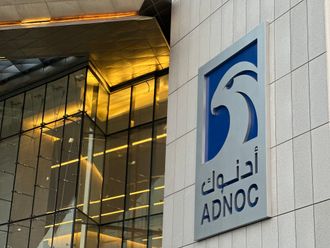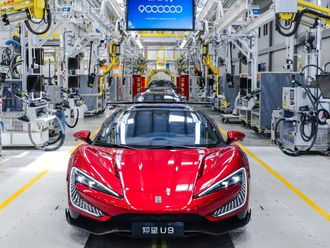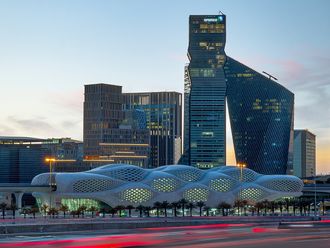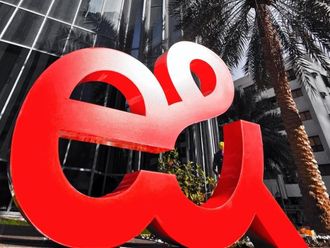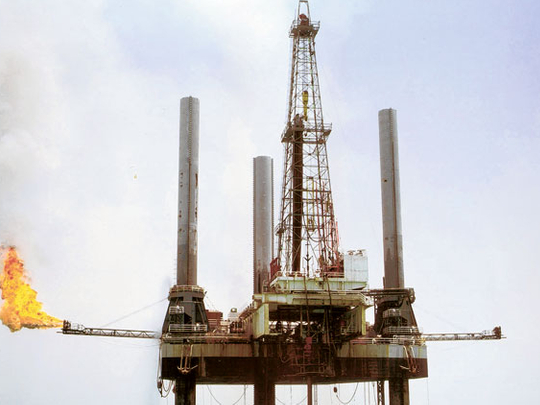
Abu Dhabi: The Abu Dhabi government will evaluate companies on their technical ability when a decision is finally taken before January 2014 on foreign partnerships for onshore concessions expiring that year, a well-placed oil industry source told Gulf News. Political and financial considerations will also play a role, the source said.
The decision on foreign partners for offshore concessions will likely be taken before their expiry in 2018, said the source.
“The indications are the onshore concessions will be offered for a shorter duration, not 65 years as is the case with some existing contracts. The government is still working on them,” the source said.
Abu Dhabi National Oil Company (Adnoc) is the 60 per cent owner of Abu Dhabi Company for Onshore Oil Operations, or Adco, the joint venture currently charged with managing output from Abu Dhabi’s major onshore oil assets. Adco’s other partners are ExxonMobil, Royal Dutch Shell, BP and Total, each with a 9.5 per cent stake, and Partex Oil & Gas, with 2 per cent.
Abu Dhabi Marine Operating Company (Adma-Opco) which operates offshore fields in Abu Dhabi has BP, Total and Japan Oil Development as foreign partners. ExxonMobil is Adnoc’s main foreign partner in Zakum Development Company (Zadco). It holds 28 per cent of the consortium formed in 2006 to develop the Upper Zakum offshore oil field. That concession expires in 2026.
Adnoc is drawing up a shortlist of bidders for onshore oil contracts due to be awarded in 2014.
“We are now in the selection process of the bidders,” Abdullah Al Suwaidi who represents Adnoc on Abu Dhabi’s Supreme Petroleum Council (SPC), which is responsible for awarding the concessions told reporters in Abu Dhabi in April. He confirmed the process for accepting bids was underway. Adnoc and committees advising the SPC were evaluating many proposals and would not rush the selection process, Suwaidi indicated.
“The existing partners of Adco and Adma-Opco expect to stay on. Even though operating costs are going higher, the risk is low,” Kate Dourian, Editor in Chief, Middle East for Platts, a global energy information provider told Gulf News.
The oil industry source agreed with Dourian’s assessment. Citing the reasons why existing partners of Adco and Adma-Opco would like to stay on, he said: “Access to oil and political stability. Abu Dhabi is a premium place to be, in terms of safety. There’s a stable operating environment. The assets look good to be part of a company’s portfolio. They want to be here for reputation, not necessarily for big financial gains.”
According to Platts, Abu Dhabi oil concessions, some of which date back to the late 1930s, llow international oil companies to book reserves. However, industry sources say the foreign partners are paid only about $1 for each barrel of oil produced, from which they must pay extraction costs.
Abu Dhabi’s Supreme Petroleum Council, which makes all major decisions pertaining to oil and gas in the largest and richest UAE emirate, is now understood to be seeking access to cutting-edge technology for improving recovery from aging oil fields and exploiting untapped fields that were previously deemed too small or technically challenging to develop.
The UAE intends to increase its oil production capacity to 3.5 million bpd by 2018 from 2.7 million bpd to meet the rising global oil demand. Abu Dhabi contributes more than 90 per cent to the UAE’s oil output, the bulk of which is exported.
Adco’s chief executive Abdul Munim Al Kindy previously said he was hoping new capacity of 213,000 bpd would come on stream in 2012. He also said at the time, service contracts will be awarded in 2012 for projects that will bring on stream additional new capacity of 200,000 barrels per day by 2016.
“The real balance Abu Dhabi needs to strike is between making space for entrants from for instance China, who do not yet have the most advanced technologies, but bring a strategic partnership of another kind (long-term growth-market ties mainly) to the table and the need to make sure that hi-tech providers are not lost,” Samuel Ciszuk, Consultant at U.K.-based KBC Process Technology Ltd told Gulf News.
He added: “This is another reason why the Adco and Adma-Opco concessions might in the end be broken up along some overt or less overt lines, allowing more straightforward assets to be handled by strategically important partners with less of a technical edge and more advanced reservoirs to be handled by companies with leading techniques.
"Another benefit of making one particular company take charge of a particular field (whether under a new “mini-concession” or as part of a wider concession where the companies divide the operatorships between each other) is that IOCs would not feel threatened by the risk of revealing proprietary technologies to their concession partners, which in effect are their competitors in the rest of the world.”



